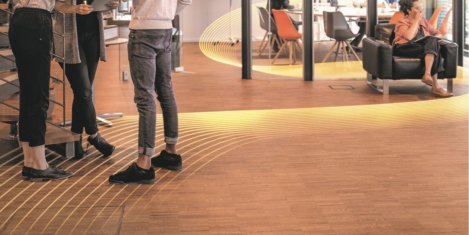May 6, 2020
Organisations think empowering people is the route to success (but only a few act)
 Nearly 90 percent of organisations say their success depends on empowering frontline employees to make decisions in real, but only 7 percent offer people the tools they need, according to a new report from Harvard Business Review Analytic Services, sponsored by ThoughtSpot. The report, The New Decision Makers: Equipping Frontline Workers For Success, analyses the sentiments of 464 business executives from 16 industry sectors in North America, Europe and Asia Pacific. Only one-fifth of organisations say they currently have a truly empowered and digitally equipped workforce while 86 percent agree their frontline workers need better technology and more insight to be able to make good decisions in the moment. (more…)
Nearly 90 percent of organisations say their success depends on empowering frontline employees to make decisions in real, but only 7 percent offer people the tools they need, according to a new report from Harvard Business Review Analytic Services, sponsored by ThoughtSpot. The report, The New Decision Makers: Equipping Frontline Workers For Success, analyses the sentiments of 464 business executives from 16 industry sectors in North America, Europe and Asia Pacific. Only one-fifth of organisations say they currently have a truly empowered and digitally equipped workforce while 86 percent agree their frontline workers need better technology and more insight to be able to make good decisions in the moment. (more…)













 When faced with a moral dilemma, people usually respond in one of three ways, and the moral decision changes according to the setting, claims recent research from
When faced with a moral dilemma, people usually respond in one of three ways, and the moral decision changes according to the setting, claims recent research from 


 New research has been published aimed at understanding trends, practices and priority areas for improving employees’ experience and creating better places to work. The report,
New research has been published aimed at understanding trends, practices and priority areas for improving employees’ experience and creating better places to work. The report, 
 Following reports that job applications on the first working Monday of the New Year spiked by 89 percent compared to the average Monday in December, many UK businesses may be missing a trick in their efforts to retain staff, new research has suggested. When researchers commissioned by
Following reports that job applications on the first working Monday of the New Year spiked by 89 percent compared to the average Monday in December, many UK businesses may be missing a trick in their efforts to retain staff, new research has suggested. When researchers commissioned by 

















